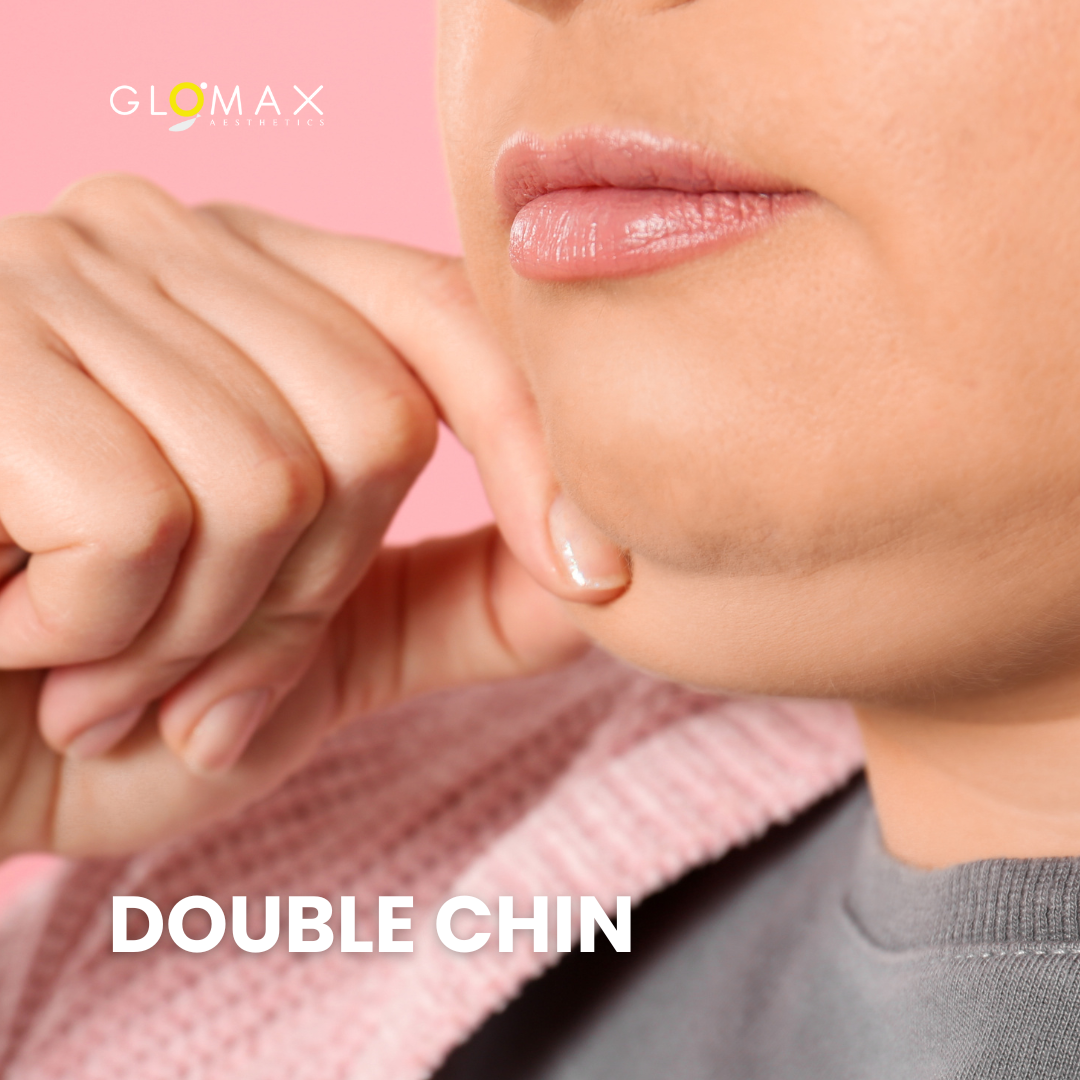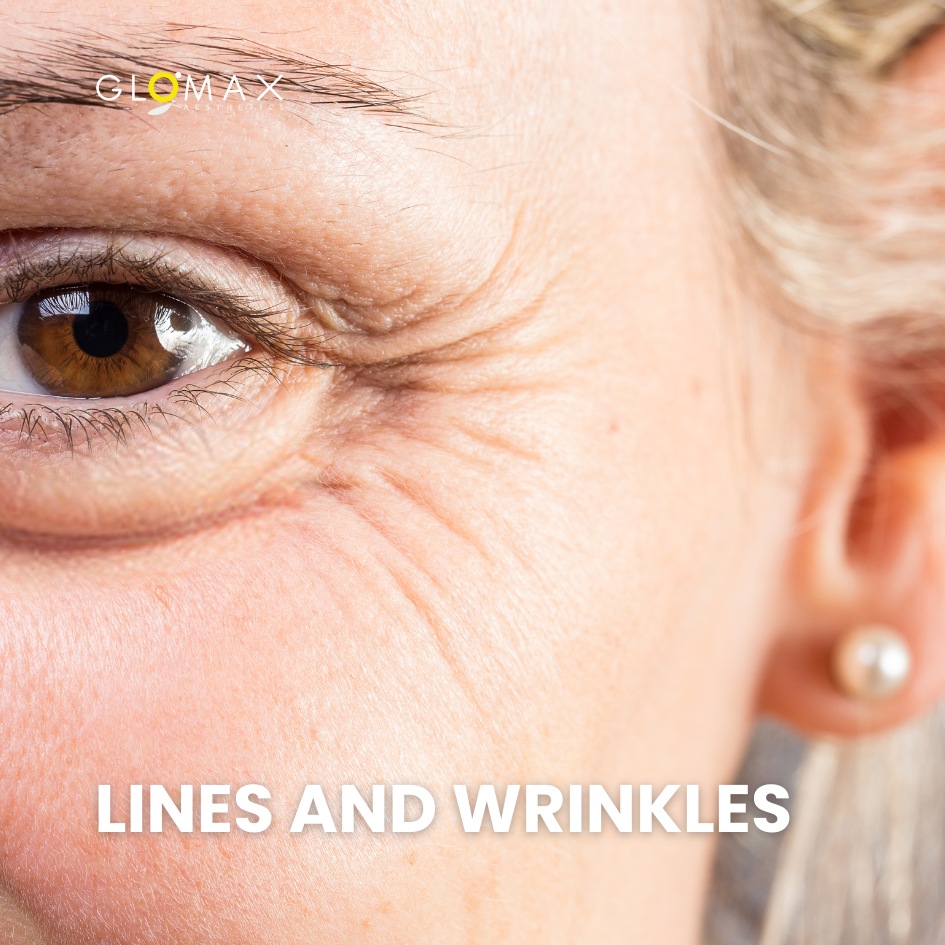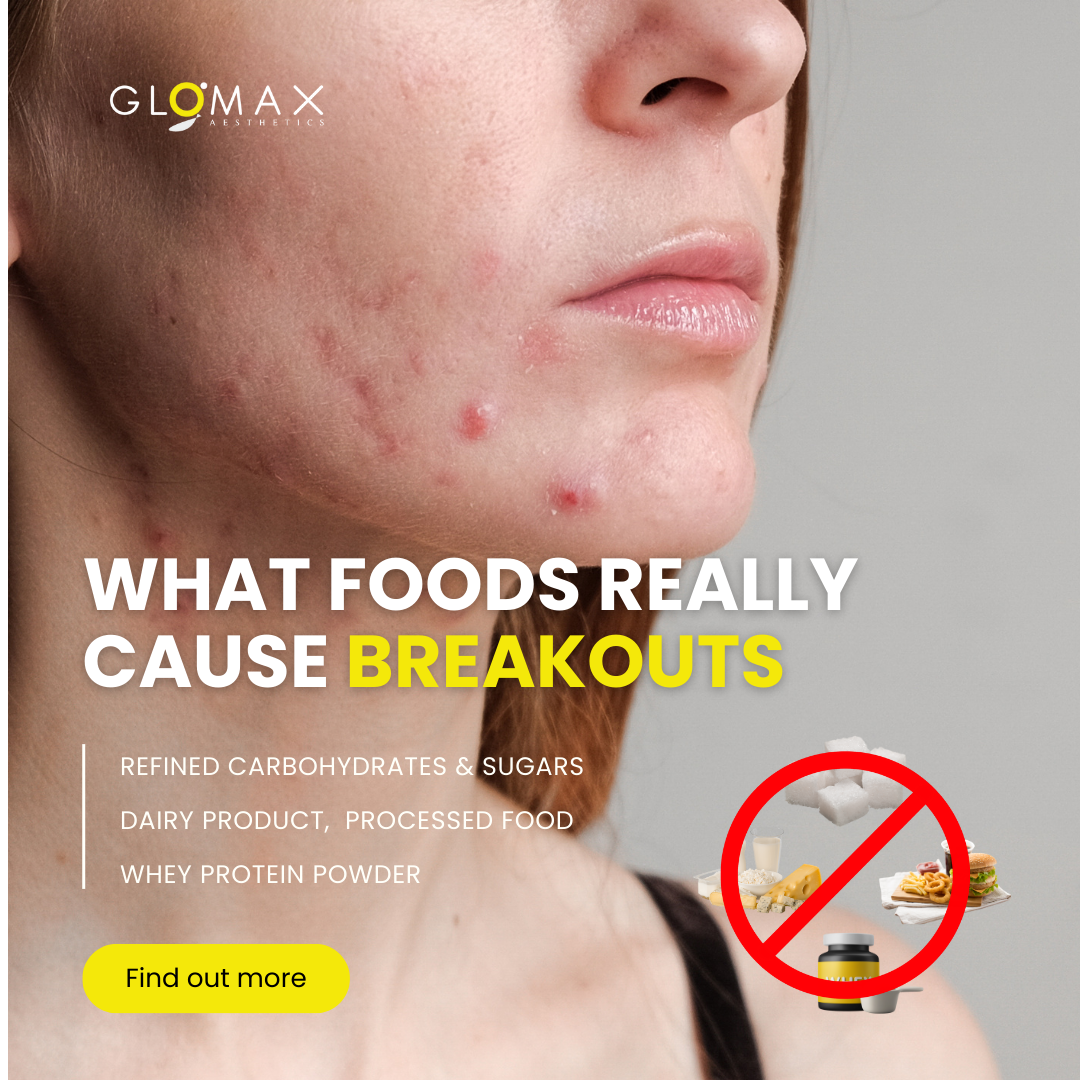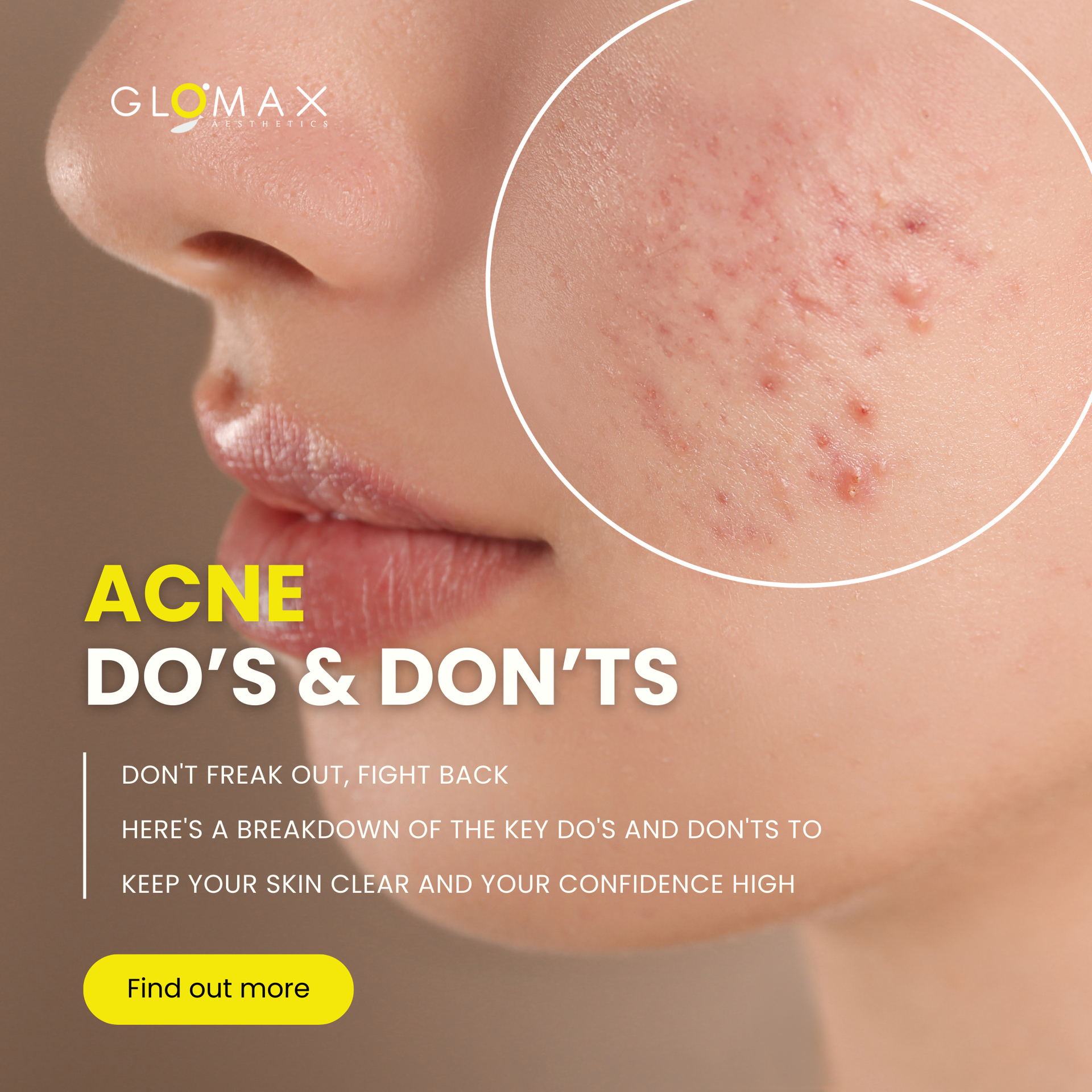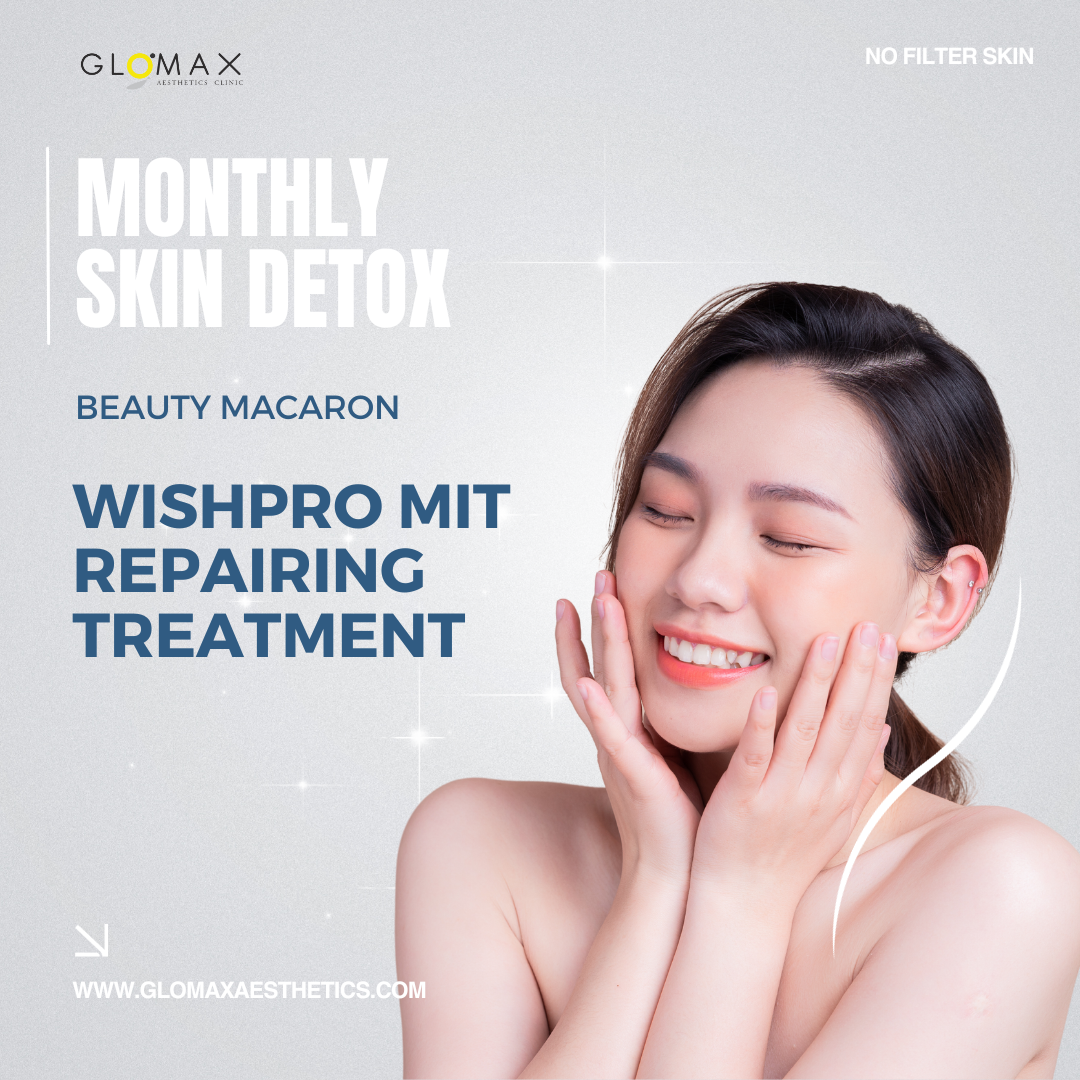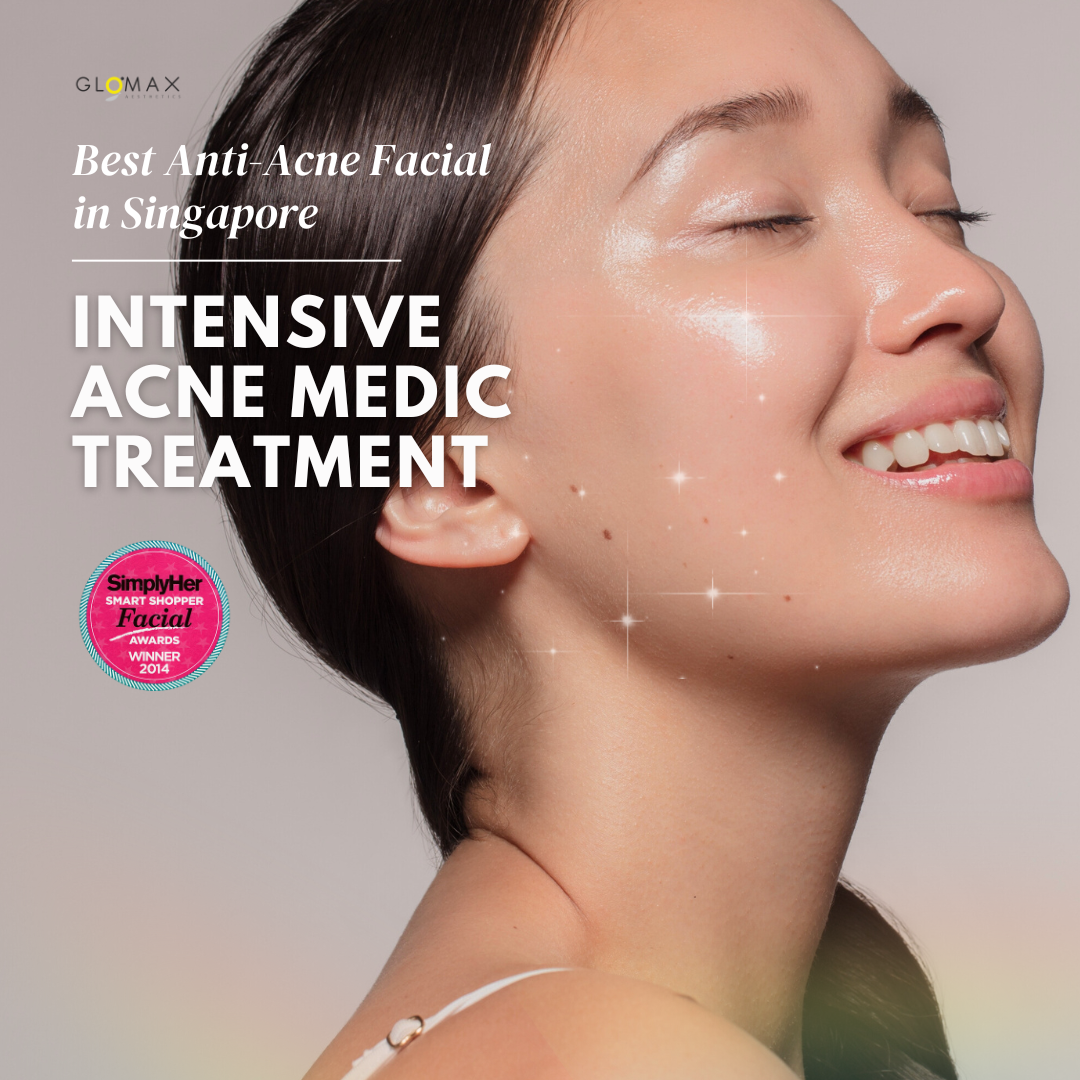Clearing the Path to Healthy Skin: Tips for Acne & Oily-Prone Skin
By Evon Low on October 31, 2023
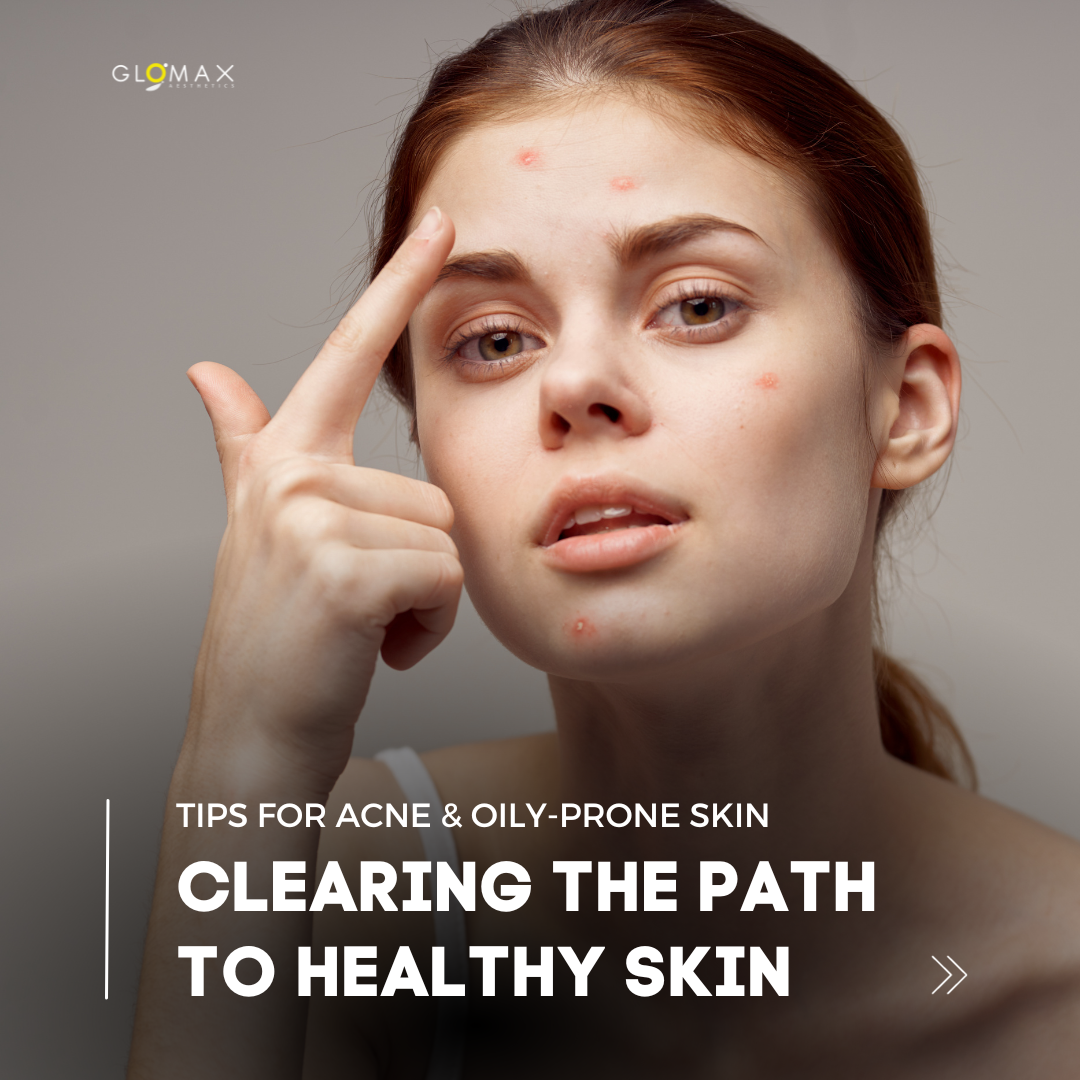
Acne and oily-prone skin can make you feel uncomfortable and affect your self-confidence. It's important to note that having acne is normal, but it can be a challenge to manage.
This is where professional extractions and effective treatments come in. As a licensed esthetician, I have seen the benefits of these treatments firsthand. In this blog post, I will discuss how professional extractions and effective treatments can provide a clear path towards healthy skin.
Acne and oily-prone skin can be a common concern for many individuals, but understanding the causes and finding the best treatments can help manage and improve these conditions. Here are some insights into the causes of acne and the best treatments available:
Say Goodbye to Acne: $89 First-Time Acne Treatment at Glomax Aesthetics!
90 min full treatment; No hard-selling, No hidden costs
Causes of Acne and Oily-Prone Skin
Hormonal Imbalances
One of the primary causes of acne and oily-prone skin is hormonal imbalances, especially during puberty. During adolescence, the body produces more androgens – the male sex hormones. These hormones trigger the sebum (oil) producing glands in the skin, leading to the overproduction of oil. The excess oil clogs the pores, creating an ideal environment for acne-causing bacteria to thrive. Women may also experience hormonal acne during their menstrual cycle, pregnancy, and menopause.
Genetics
Genetic predisposition can influence acne-prone skin. If your parents dealt with acne or oily-prone skin, you are more likely to experience the same. Specific genes impact how your body responds to androgens and regulates oil production. While genes cannot be changed, adopting a suitable skincare routine and healthy habits can mitigate their effects.
Environmental Factors
Exposure to certain environmental factors can also contribute to acne and oily-prone skin. For instance, pollution, dirt, and dust can accumulate on the surface of your skin, clogging your pores and leading to breakouts. Additionally, using harsh or abrasive skincare products, such as exfoliating scrubs or cleansers, can cause irritation, dryness, and inflammation, exacerbating the appearance of acne.
Diet
Your dietary choices can also influence skin health. Research has shown that consumption of high glycemic foods, such as sugar, white bread, pasta, and potatoes, can disrupt hormonal balance, triggering increased oil and sebum production. Dairy intake, especially milk, has been associated with acne breakouts due to hormone content that may promote oil production and inflammation. However, individual responses to these foods can vary, underscoring the importance of identifying your unique dietary triggers.
Stress
Stress is a significant factor that can worsen acne and oily-prone skin. When stressed, the body releases stress hormones like cortisol, which can trigger oil production and inflammation, contributing to the development of acne. Finding effective stress management techniques can help improve your overall skin health.
Effective Treatments
To effectively address acne and oily-prone skin, it is essential to explore suitable treatment options. Please refer to our blog post for further information on
six effective treatments for acne-prone skin.
@glomaxaestheticssg 6 Professional Solutions for Acne & Pimples: Get the Clear Skin You Deserve! #acnetreatment #clearskin #awardwinner #glowup #glomaxaesthetics #glomax #skincare ♬ You And Me - Lyus
Oral medicine for skin problems
Oral medicine can be an effective addition to topical treatments for skin problems. Oral medicine such as antibiotics, anti-inflammatory drugs, and hormonal drugs have shown promising results in treating acne, rosacea, and other inflammatory skin conditions. It is important to discuss with your doctor or dermatologist any potential side effects and ensure the medication is safe for your individual health situation.
At-Home Care
Your esthetician will recommend suitable skincare products for your skin type, but at-home care is equally important. Consistently using these products and following a gentle skincare routine will help you maintain healthy skin. Avoid harsh ingredients and over-exfoliation, as they can be damaging to your skin's health.
Topical Retinoids
Derived from vitamin A, topical retinoids have proven highly effective in treating acne and oily-prone skin. They regulate oil production, promote cell turnover, and reduce inflammation. Topical retinoids can be obtained over the counter or through prescription.
Treating skin problems from within
While external treatments are valuable, it's essential to remember that skincare starts from within. A balanced diet rich in vitamins and minerals can improve your skin's health. Drinking plenty of water helps flush out toxins that may contribute to skin problems. Additionally, getting sufficient sleep and managing stress positively impact your skin's appearance.
Conclusion:
Acne and oily-prone skin can be difficult to manage, but with the help of professional extractions and effective treatments, a clear path towards healthy skin is achievable. Regular treatments, at-home care, and lifestyle changes can all contribute to healthy skin.
Remember, healthy skin takes time and consistency, but the results are worth it. Consult with your esthetician to determine which treatments are best for you and begin your journey towards healthy skin today!
(Note: The information provided in this blog post is based on general knowledge and research. It is always recommended to consult with a healthcare professional or dermatologist for personalized advice and treatment options.)
LOVE YOUR SKIN ♡
Sources:
HealthMatch: How To Treat Oily Acne-Prone Skin
Pandia Health: How To Take Care Of Acne-Prone Skin & Prevent Breakouts
Dermalogica: Looking like a glazed donut? 7 ways to treat acne for oily skin
Epicuren: What Is Acne-Prone Skin?
Dr. Dennis Gross: Acne Skincare Routine & How to Treat Acne
Asian Beauty Essentials: A Full Guide On How To Get Rid Of Acne
WebMD: Manage Your Oily Skin and Fight Acne
Welcome to Glomax Aesthetics Beauty Blog
Join us for all things beauty, from skincare tips to the latest aesthetics trends. Stay tuned for our expert advice and product recommendations. Let's embrace our inner beauty together!
You Might Like...

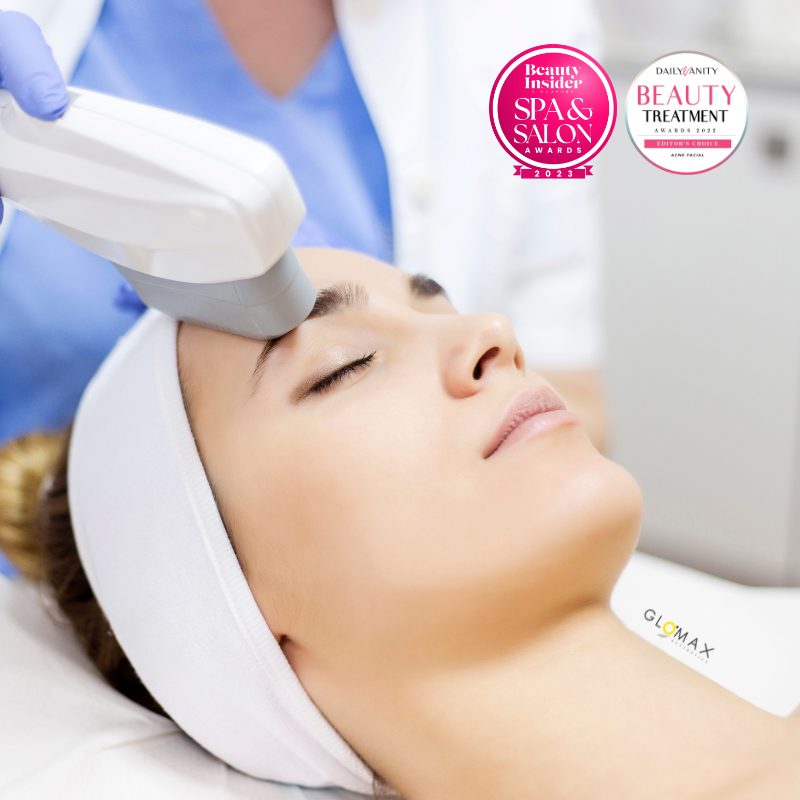

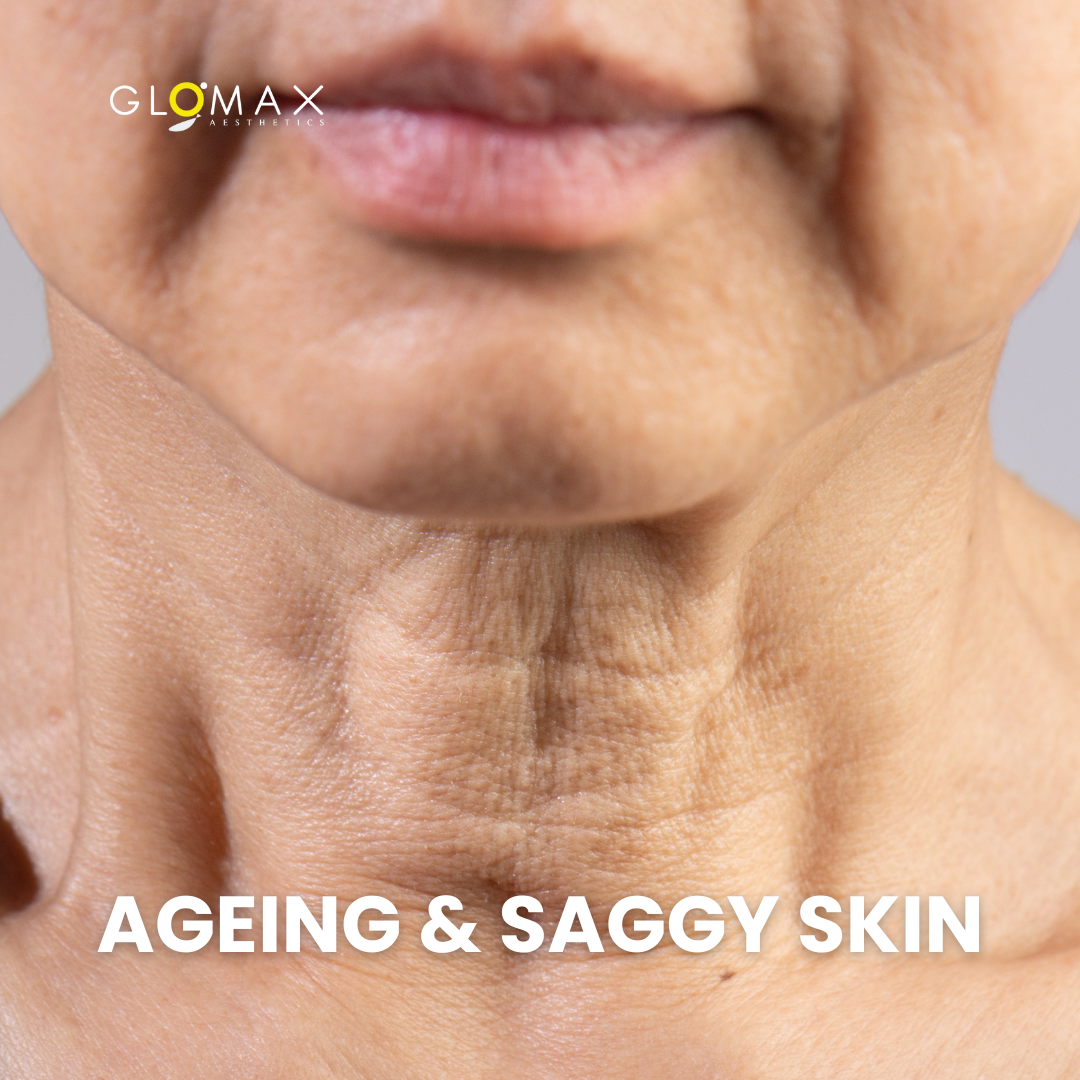

Follow Us
Most Popular
EMBARK ON A GLO JOURNEY WITH US!
GLOMAX AESTHETICS
MOST POPULAR
WishPro MIT Skin Repairing Treatment
Intensive Acne Medic Treatment
Luminous Detox Energie Care Facial
GX-Lift Face Contour Treatment
E-SHOP
PROMOTIONS
Join our mailing list!
We will get back to you as soon as possible
Please try again later
PAYMENT OPTIONS

Copyright 2008 - 2024 - GLOMAX AESTHETICS®. All Rights Reserved


